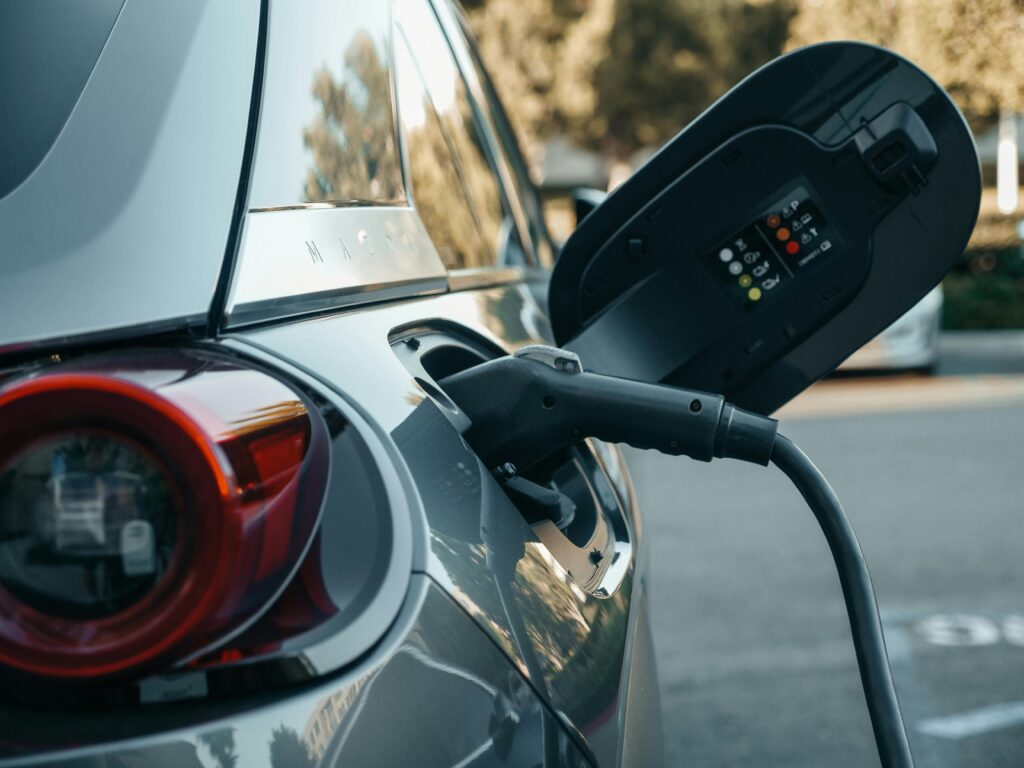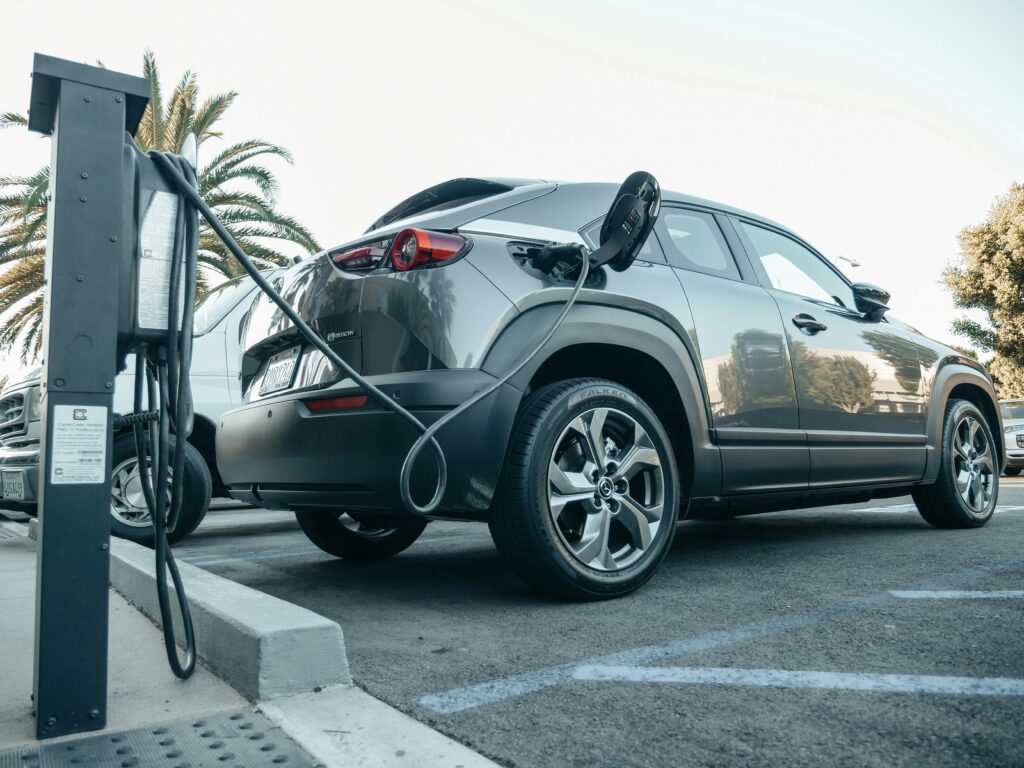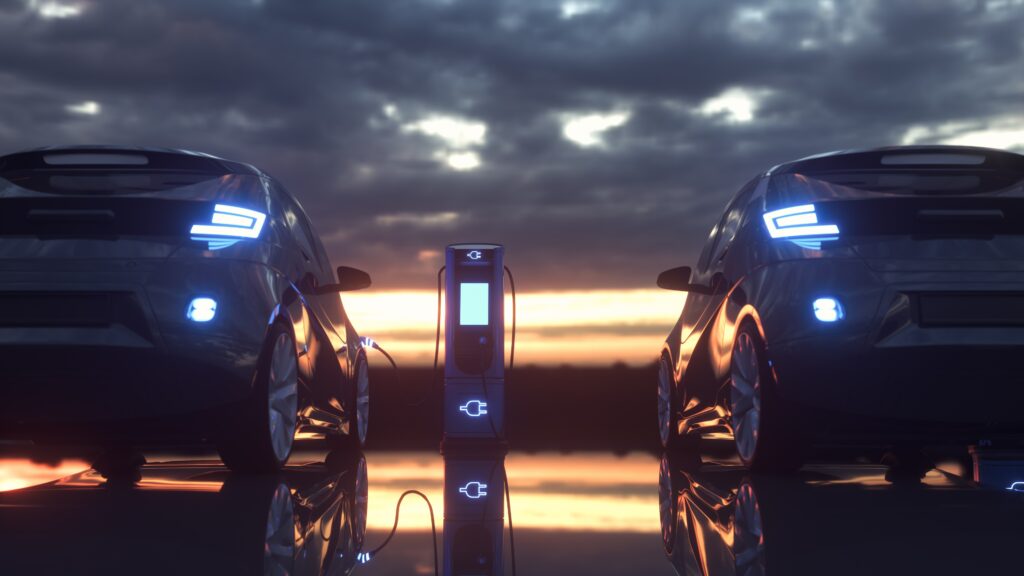Table of Contents
Table of Contents
If you’re considering making the switch to electric, you’ve probably wondered about the elephant in the room: how much will installing a home charger actually cost? The answer isn’t as straightforward as you might hope, but it’s not as scary as some people make it out to be either.
The typical EV charger installation cost in the UK ranges from £800 to £1,500 for a standard 7kW home charging point. However, this figure can vary significantly depending on your property type, electrical setup, and chosen installer. The good news? The government’s OZEV grant can slash up to £350 off your installation costs, making home charging more affordable than ever.
But here’s what most people don’t realise: the installation cost is just one piece of the puzzle. You’ll also need to factor in your existing electrical infrastructure, potential upgrades to your consumer unit, and whether you need additional groundwork for cable routing.
The reality is that while the upfront investment might seem daunting, most UK homeowners recoup their installation costs within 18-24 months through reduced fuel expenses. Let’s break down exactly what you can expect to pay and how to keep those costs as low as possible.
Understanding Electric Car Charger Installation Costs: The Full Breakdown
When electricians quote for home electric car charger installation, they’re considering far more than just mounting a box on your wall. The total cost encompasses several key components that many homeowners overlook when budgeting for their EV charging setup.
The Core Components of Installation Costs
Charging Unit Costs: The charger itself typically accounts for £300-£600 of your total investment. A basic 7kW tethered unit from reputable brands like Pod Point or Ohme starts around £300, while premium smart chargers with advanced scheduling features can reach £600 or more.
Labour and Installation: Professional installation labour usually ranges from £400-£800, depending on the complexity of your setup. A straightforward installation on a detached house with easy access to the consumer unit will be at the lower end, while installations requiring extensive cable runs or complicated routing can push costs higher.
Additional Equipment: Don’t forget the extras that can add £100-£300 to your bill. This includes protective equipment like RCD units if your consumer unit needs upgrading, mounting posts for installations away from walls, and weatherproofing accessories for exposed installations.
Property-Specific Cost Variations
Your home’s characteristics significantly impact installation costs. Terraced house EV charger installation often costs more due to limited parking access and complex cable routing through party walls. Expect to pay an additional £200-£400 for these challenging installations.
Conversely, detached houses with garages or driveways close to the electrical supply typically enjoy the most cost-effective installations. The proximity to your consumer unit and straightforward cable runs can keep costs at the lower end of the typical range.
Flat dwellers face unique challenges, with installation costs potentially reaching £2,000 or more when factoring in communal area permissions, extended cable runs, and potential need for dedicated parking bay infrastructure.

OZEV Grant: Your Key to Affordable Installation
The OZEV grant for electric car chargers remains one of the UK’s most valuable incentives for EV adoption, though recent changes have refined eligibility criteria. Currently, the grant provides up to £350 towards installation costs for eligible applicants.
Who Qualifies for OZEV Grant Support?
The grant is available to homeowners and tenants (with landlord permission) in England, Wales, and Scotland. However, there’s a catch: you must live in a flat or rented accommodation, or own a property without off-street parking. The government removed grant eligibility for homeowners with private driveways in April 2022, focusing support on those facing greater installation challenges.
Social housing tenants can access enhanced support, with grants covering up to 75% of installation costs capped at £350. This makes EV charging accessible to lower-income households who might otherwise struggle with upfront costs.
Maximising Your Grant Benefits
To make the most of OZEV funding, choose an approved installer from the official register. Only certified installers can apply for grants on your behalf, and they’ll handle the paperwork reducing your hassle.
The grant applies per eligible parking space, so properties with multiple EVs can potentially claim multiple grants. However, you’ll need separate installations and meet eligibility criteria for each application.
Hidden Costs That Catch Homeowners Off-Guard
While headline installation costs grab attention, several hidden expenses can inflate your final bill. Being aware of these potential extras helps you budget more accurately and avoid nasty surprises.
Electrical Infrastructure Upgrades
Many UK homes, particularly older properties, require electrical upgrades before EV charger installation. If your consumer unit lacks sufficient capacity or appropriate safety devices, you might need upgrades costing £300-£800.
Three-phase supply upgrades, while rare for domestic installations, can cost £1,000 or more if your property needs enhanced electrical capacity. Most homes manage perfectly well with single-phase 7kW chargers, but larger properties with multiple EVs might consider three-phase options.
Planning Permission and Building Regulations
Most domestic EV charger installations fall under permitted development rights, avoiding planning permission fees. However, listed buildings, conservation areas, or flats might require planning applications costing £200-£400.
Building regulations approval, while not always mandatory for simple installations, provides additional peace of mind and might be required for complex installations or insurance purposes.
Ground Works and Cable Protection
Installations requiring underground cable runs or protective ducting can add £200-£500 to your costs. Properties without suitable external walls near parking areas often need extensive groundwork to route cables safely.
Cable protection becomes particularly important for installations crossing driveways or pathways. Professional installers will specify appropriate protective measures, but these can add significantly to material costs.
Comparing Charger Types and Their Cost Implications
Different charger types suit different needs and budgets. Understanding these options helps you choose the most cost-effective solution for your circumstances.
Tethered vs Untethered Chargers
Tethered chargers come with attached cables, offering convenience but limiting flexibility. These typically cost £50-£100 more than untethered alternatives but eliminate the need to carry charging cables.
Untethered chargers require separate charging cables but offer greater flexibility for different EV types. While initially cheaper, you’ll need to budget £150-£300 for quality charging cables.
Smart vs Basic Chargers
Smart chargers with app connectivity and scheduling features cost £100-£200 more than basic alternatives but offer significant long-term benefits. Features like off-peak charging scheduling can reduce electricity costs by 40-60%, quickly offsetting the initial premium.
Solar integration capabilities in premium smart chargers enable you to maximise renewable energy usage, further reducing running costs and environmental impact.
Power Rating Considerations
While 7kW chargers suit most UK homes and EVs, 3.6kW alternatives cost £100-£200 less. However, slower charging speeds might prove frustrating for high-mileage drivers or large-battery EVs.
22kW three-phase chargers, while faster, cost significantly more and require expensive electrical upgrades in most homes. Few domestic installations justify this expense and complexity.

Regional Price Variations Across the UK
EV charger installation costs vary significantly across UK regions, reflecting local labour rates, installer availability, and market competition.
London and South East Premium
London installations typically cost 20-30% more than national averages, with labour rates reflecting the capital’s higher living costs. However, greater installer competition can sometimes offset these premiums through competitive pricing.
Scotland and Northern England Value
Scottish and northern English installations often offer better value, with competitive labour rates and strong installer networks. Government support for EV adoption in these regions sometimes provides additional local incentives.
Rural Installation Challenges
Rural areas face unique challenges with potentially higher costs due to limited installer availability and longer travel distances. However, simpler property layouts often offset these factors with straightforward installations.
Long-Term Financial Benefits: Why Installation Costs Pay Off
While upfront home EV charger installation costs might seem significant, the long-term financial benefits make this investment highly attractive for most households.
Fuel Cost Savings
Home charging typically costs 2-4p per mile compared to 12-15p per mile for petrol. A typical UK driver covering 8,000 miles annually saves £600-£800 annually through home charging versus petrol costs.
Off-peak electricity tariffs can reduce charging costs further, with some suppliers offering rates as low as 5p per kWh during overnight periods. This can reduce per-mile costs to just 1-2p.
Reduced Public Charging Dependency
Public charging networks, while expanding rapidly, remain expensive compared to home charging. Rapid charging often costs 25-40p per kWh, making home installation essential for cost-effective EV ownership.
Home charging also provides convenience and reliability that public networks can’t match, eliminating range anxiety and charging availability concerns.
Property Value Enhancement
Properties with EV charging infrastructure increasingly command premium values, with estate agents reporting 2-5% value increases for homes with installed chargers. This appreciation often exceeds installation costs within 2-3 years.
Choosing the Right Installer: Quality vs Cost Balance
Selecting appropriate installers significantly impacts both costs and installation quality. While tempting to choose the cheapest option, quality installations provide better long-term value.
Certification and Qualifications
Always choose OZEV-approved installers with appropriate electrical qualifications. These professionals understand current regulations and can handle grant applications efficiently.
Look for installers with manufacturer training from major charger brands. This expertise ensures proper installation and maintains warranty coverage.
Getting Accurate Quotes
Request detailed quotes covering all potential costs, including electrical upgrades, groundwork, and additional equipment. Vague estimates often lead to cost overruns and project delays.
Compare at least three quotes, but don’t automatically choose the cheapest. Consider installer reputation, warranty terms, and included services when making decisions.
Warranty and Aftercare
Quality installers provide comprehensive warranties covering both equipment and installation work. Typical warranties range from 2-5 years, providing peace of mind and protection against defects.
Consider ongoing maintenance packages, particularly for smart chargers requiring software updates and technical support.
Planning Your EV Charger Installation Budget
Effective budgeting ensures smooth installation processes without financial stress. Consider both immediate costs and long-term savings when planning your investment.
Creating Realistic Budgets
Budget £1,200-£1,800 for standard installations, including potential extras and contingencies. This range covers most scenarios while providing buffer for unexpected complications.
Factor in OZEV grants and any manufacturer incentives when calculating net costs. Many EV manufacturers offer installation packages or rebates for new car purchases.
Financing Options
Some installers offer payment plans spreading costs over 6-24 months. While interest rates vary, these options can make installation more manageable for budget-conscious households.
Consider timing installations with annual bonuses or tax refunds to minimise financial impact on monthly budgets.
Future-Proofing Your Installation Investment
Smart planning ensures your charging infrastructure remains relevant as EV technology evolves and your needs change.
Capacity Planning
Install the highest capacity your electrical supply supports within budget constraints. Upgrading later costs significantly more than installing appropriate capacity initially.
Consider future vehicle needs, particularly if you might switch to larger EVs or add second vehicles to your household.
Smart Technology Integration
Invest in smart charging capabilities even if not immediately needed. Features like solar integration and dynamic load balancing become increasingly valuable as renewable energy adoption grows.
Choose chargers with regular software updates ensuring compatibility with future EV models and grid integration requirements.

Frequently Asked Questions
How much does a 7kW home charger cost to install in the UK? A standard 7kW home charger installation typically costs £800-£1,500, including the unit and professional installation. This can be reduced by up to £350 with OZEV grant eligibility.
Am I eligible for the OZEV grant in 2024? The OZEV grant is available for flat residents, renters (with permission), and homeowners without off-street parking. Homeowners with private driveways are no longer eligible since April 2022.
Do I need planning permission for EV charger installation? Most domestic installations fall under permitted development rights and don’t require planning permission. However, listed buildings and conservation areas may need approval.
Can I install an EV charger without a driveway? Installation without driveways is possible but challenging. You’ll need alternative parking arrangements and may require longer cable runs, increasing costs significantly.
How long does EV charger installation take? Standard installations typically take 2-4 hours. Complex installations requiring electrical upgrades or extensive groundwork might take a full day.
What’s the difference between tethered and untethered chargers? Tethered chargers have attached cables for convenience but cost slightly more. Untethered chargers offer flexibility but require separate charging cables.
Will an EV charger increase my home’s value? Properties with EV charging infrastructure typically see 2-5% value increases, often exceeding installation costs within 2-3 years.
Making the Investment: Your Next Steps
Installing an EV charger represents a significant step towards sustainable transportation while providing long-term financial benefits. With proper planning and realistic budgeting, most UK homeowners find installation costs manageable and worthwhile.
Start by assessing your property’s suitability and electrical capacity. Contact OZEV-approved installers for detailed quotes, ensuring you understand all potential costs and grant eligibility.
Remember that while upfront costs might seem substantial, the combination of fuel savings, convenience, and property value enhancement makes home EV charging one of the smartest investments for modern UK households.
The transition to electric driving is accelerating, and those who invest in home charging infrastructure today position themselves advantageously for the fully electric future. With careful planning and the right installer, your EV charger installation will provide years of convenient, cost-effective charging while supporting your sustainable lifestyle goals.
Ready to take the next step? Contact certified installers in your area for personalised quotes and discover how much you could save with professional EV charger installation.


